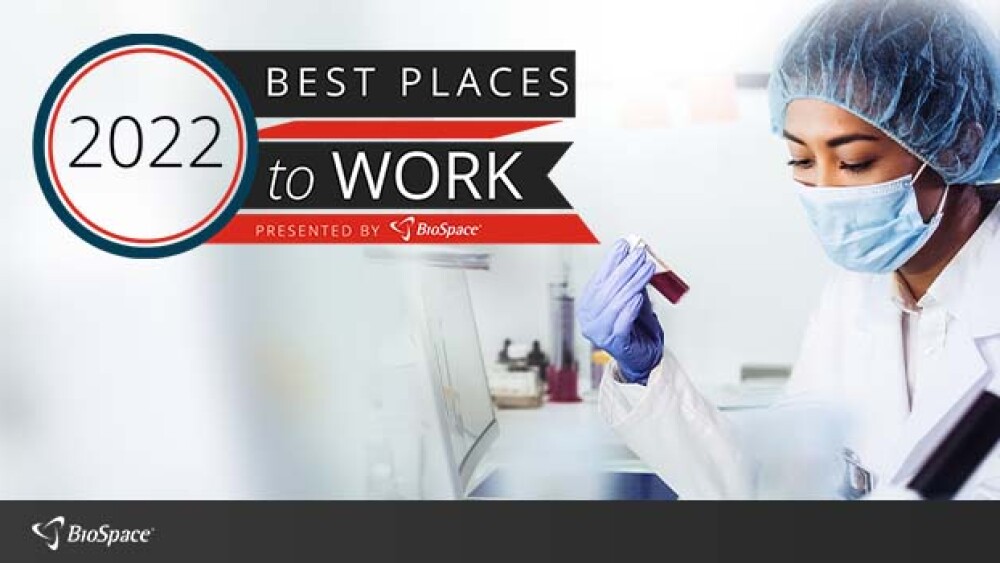This year’s top 30 large and small companies operate in some of the Life Sciences’ hottest spaces – precision medicine, vaccines, gene editing, genomics and oncology.
During the past 20 months, people have been reprioritizing and reassessing what is most important in their lives and career.
These shifting priorities are evident in BioSpace’s 2022 Best Places to Work survey. The majority of respondents ranked intrinsic motivations like career growth and development, leadership and culture on par with, or even higher than pay and benefits. There is nothing like coming face-to-face with one’s own mortality – even if at a distance – to spark a desire to make a mark on the world. Thus, people are attracted to employers with innovative pipelines, legendary founders and sparkling reputations. Near the top of employees’ must-have checklists is strong leadership that can provide the mentorship they seek as they endeavor to grow in their careers.
This year’s top 30 large and small companies check all these boxes. They operate in some of the Life Sciences’ hottest spaces – precision medicine, vaccines, gene editing, genomics and oncology. They boast formidable pipelines, established products and many are on a momentous roll. They have welcoming cultures, executive boards packed with both scientific and business experience and they place an emphasis on growing new leaders from within.
Given these criteria, the first and second place winners in the large employer category should be no surprise. mRNA leader Moderna seized the number one spot, with Pfizer taking the second. Biotech icon Genentech followed in the third spot. The gene editing and genomics spaces were well-represented among the top 3 employers with less than 1000 employees. Massachusetts-based CRISPR Therapeutics was the most-preferred employer, followed by consumer DNA testing company 23andMe and 10X Genomics.
At the same time, employees want to be paid what their education and expertise are worth. The companies on this list derive considerable revenue from already successful products and the excitement generated by their cutting-edge science. This revenue trickles down to employees not only in terms of salary and benefits but also in the way of funds for learning and development programs and grants to continue pioneering research. Innovative therapeutics on the brink of exploding – mRNA, gene therapy – offer candidates the opportunity to get in on the ground floor of something important. Leadership positions in these spaces are coveted.
For all the attention they receive, remote options and flexible working hours were far from the top of employees’ priority lists. Perhaps due to their greater role as caregivers during the heart of the pandemic, women valued intangible attributes such as these at a higher rate than men. In a recent Deloitte Global report, nearly 80% of women said their workloads have increased because of the pandemic and 66% of women report having more responsibilities at home.
Generational differences also informed the elements that mattered most in an employer. Millennial respondents, at a stage where they are climbing the ladder more aggressively than the other groups, valued career growth and development the most, followed by gen Xers. Baby boomers, possibly wanting to hang a star on top of their career, placed more of an emphasis on innovation and drug pipeline and reputation. Gen Xers were right there with them. These two groups agreed on a number of priorities.
Priorities were also different for employees working on the east and west coasts and in the Midwest, with disparities even emerging between the Biotech Bay region of San Francisco Bay area and Northern California and their neighbors to the south in Biotech Beach.
For more insight and to uncover BioSpace’s 2022 Best Places to Work, see the full report here.






